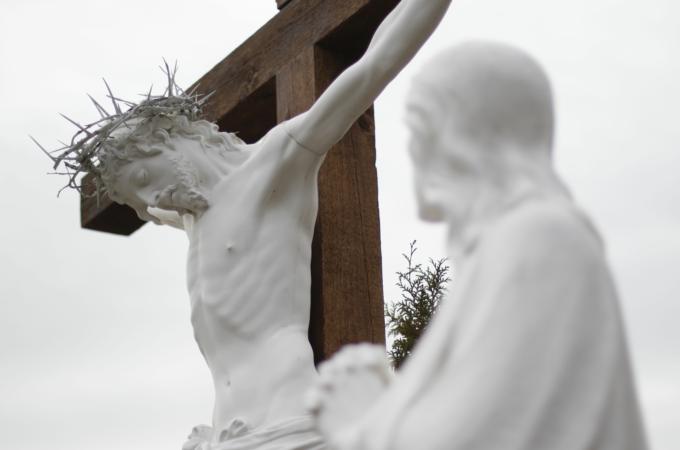The Understanding and Compassion of Good Friday
As Jesus is being crucified he utters these words: "Forgive them, they know not what they do." It is not easy to say these words and it is perhaps even more difficult to grasp them in their depth. What does it mean, really mean, to understand and forgive a violent action against you?
There are various approaches here: For example, in a tragic note, shared countless times on Social Media, a man who lost his wife in the terrorist attacks in Paris in 2015 wrote these words, addressed to those who killed his wife:
"On Friday evening you stole the life of an exceptional person, the love of my life, the mother of my son, but you will not have my hatred. I don't know who you are and I don't want to know, you are dead souls. If this God for whom you kill blindly made us in his image, every bullet in the body of my wife is a wound in his heart. So no, I will not give you the satisfaction of hating you. You want it, but to respond to hatred with anger would be to give in to the same ignorance that made you what you are. ... We are only two, my son and I, but we are more powerful than all the world's armies... every day of his life this little boy will insult you with his happiness and freedom."
While this response is wonderfully heroic and virtuous, it does not, I believe, go deep enough in its understanding and compassion. Virtuous as it is, it still carries a note of moral separateness, of a certain superiority. Further still, it lacks all admission of being itself somehow complicit in the unfortunate circumstances of culture and history that helped bring about this horrible act because it avoids the question: Why do you hate me? It is a very positive and helpful note in its refusal of hatred; but, I fear, it may have exactly the opposite effect upon those whom it accuses. It will further enflame their hatred.
Contrast this with the letter the Trappist Abbott, Christian de Cherge, wrote to his family, just before he, himself, was killed by Islamic terrorists. He writes:
"If it should happen one day -- and it could be today -- that I become a victim of the terrorism which now seems ready to encompass all the foreigners living in Algeria, I would like my community, my Church, my family, to remember that my life was given to God and to this country. I ask them to accept that the One Master of all life was not a stranger to this brutal departure. ... I ask them to be able to associate such a death with the many other deaths that were just as violent, but forgotten through indifference and anonymity. ... I have lived long enough to know that I share in the evil which seems, alas, to prevail in the world, even in that which would strike me blindly. I should like, when the time comes, to have a clear space which would allow me to beg forgiveness of God and of all my fellow human beings, and at the same time to forgive with all my heart the one who would strike me down. ... I do not see, in fact, how I could rejoice if this people I love were to be accused indiscriminately of my murder. It would be to pay too dearly for what will, perhaps, be called "the grace of martyrdom," to owe it to an Algerian, whoever he may be, especially if he says he is acting in fidelity to what he believes to be Islam. I know the scorn with which Algerians as a whole can be regarded. I know also the caricature of Islam which a certain kind of Islamism encourages. It is too easy to give oneself a good conscience by identifying this religious way with the fundamentalist ideologies of the extremists. ... This is what I shall be able to do, if God wills -- immerse my gaze in that of the Father, to contemplate with him his children of Islam just as he sees them, all shining with the glory of Christ, the fruit of his Passion, filled with the Gift of the Spirit, whose secret joy will always be to establish communion and to refashion the likeness, delighting in the differences. ... And you also, the friend of my final moment, [my executioner], who would not be aware of what you were doing. Yes, for you also I wish this "thank you" -- and this adieu -- to commend you to the God whose face I see in yours. And may we find each other, happy 'good thieves,' in Paradise, if it pleases God, the Father of us both. Amen.
Ah, to have grace and compassion to hope to have a drink one day with our enemies in heaven, laughing together at our former misguided hatred, under the loving gaze of the same God!
- Oblate Father Ron Rolheiser, theologian, teacher, and award-winning author, is President of the Oblate School of Theology in San Antonio, TX. He can be contacted through his website www.ronrolheiser.com.
Now on Facebook www.facebook.com/ronrolheiser



















